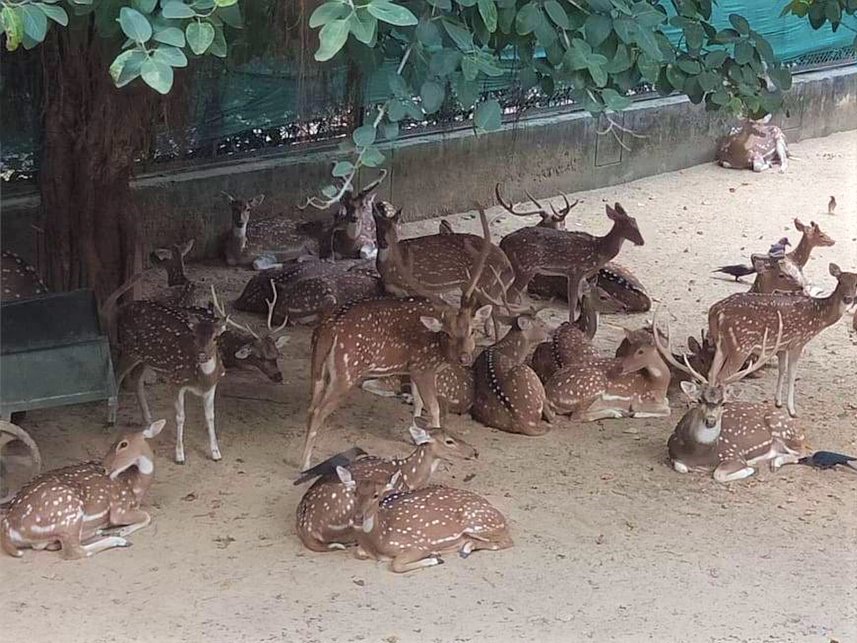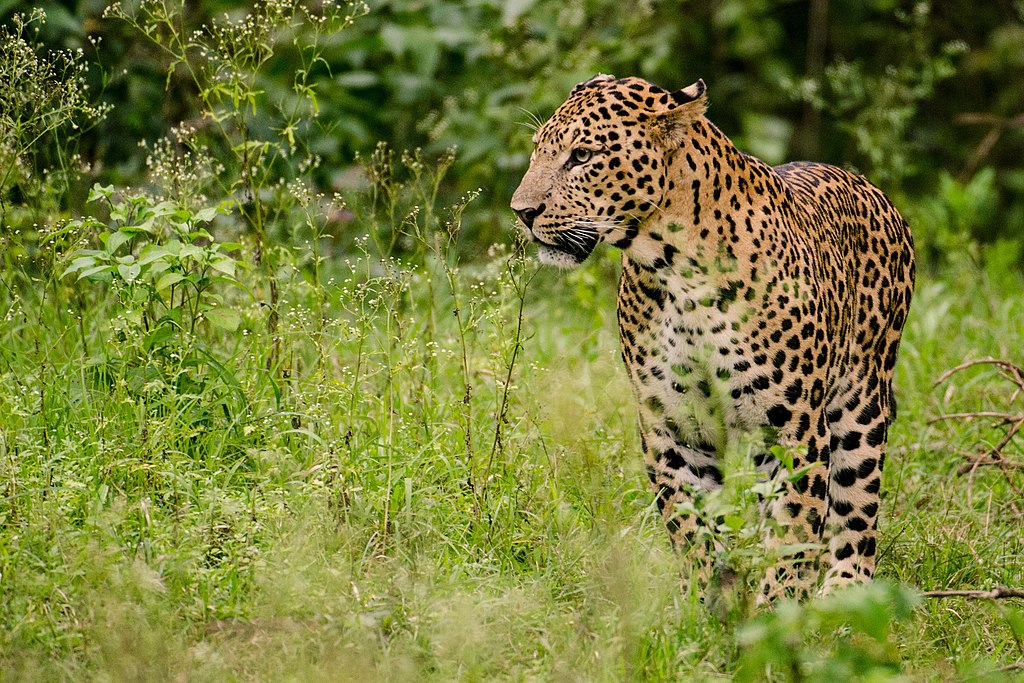As a young person growing up in Delhi, access to urban green spaces has been a rare treat. However, one place that holds immense sentimental value for me, as for countless other Delhiites, is the city’s much-loved Deer Park in the Hauz Khas area. The Delhi Deer Park is not just a recreational spot, but a sanctuary of peace in the heart of the bustling city. But now, much to our dismay and disappointment, this mini zoo is set to close, as the Central Zoo Authority has cancelled its recognition. Nearly 600 deer living in the park shall now be relocated to forest areas in Rajasthan and Asola Bhatti Wildlife Sanctuary in Delhi.
According to reports such as this one, the principal reason behind this move is overcrowding — “the unchecked population of deer in this habitat. Over the past 55 years, the park has served as a refuge for these majestic creatures, but the absence of natural predators has led to uncontrolled growth in their population. The relocation of the deer to the forests will augment the prey base in those destinations as well.”
However, as someone who deeply cares about wildlife conservation, I have urgent concerns regarding the approach to deer population management and strongly feel the need for more thoughtful conservation practices. Deer, being a protected species under the Wildlife Protection Act, deserve the highest levels of care and attention.
Read more: How can Chennai protect Olive Ridley turtles?
One of the primary concerns is the size of the current deer enclosure. With allocation of a mere 10 acres of the available 64 acres of space, it is no wonder that the deer population has outgrown its capacity. Expanding the enclosure slightly could provide the deer with a more congenial living space and alleviate the overcrowding issue.
Guidelines also suggested gender-separated enclosures to prevent overpopulation and maintain a healthy ecosystem within the park which has been clearly overlooked. Enforcing this practice will ensure that the deer population remains balanced and healthy.

Treating the deer as ‘prey’
One deeply troubling aspect that surfaced in recent news is the treating of deer as prey for leopards. The deer section of the park has been a site of care and medical treatment for these animals. Using them as prey contradicts the very principles of conservation and protection that the park was meant to uphold.
It is essential to consider the broader implications of releasing deer from captivity into areas like Asola Bhatti.
Dumping other wildlife species, such as nilgai and monkeys, is already disrupting the ecological balance and posing a threat to the existing flora and fauna in this area. Asola has become a dumping ground for wildlife captured anywhere in Delhi. When nilgai from Sanjay Van strayed out, they caught it and left it 20 km away in Asola. In fact, nilgai from several locations have been dumped in Asola.
Meanwhile, there are reports which show that nilgais are dying around Asola, either due to leopard attacks or road kill or other reasons.
Monkeys from around the city were captured too and dumped in Asola. But what food do they have there, when there’s only vilaiti kikar growing abundantly?

There is a black buck enclosure in Asola, with fencing that is only 6-7 feet high. Leopards can easily enter their enclosure but the black buck are unable to escape in such circumstances and are killed. Such concerns must be strictly addressed to protect the biodiversity of the region. Instead of that, authorities are merely trying to move more deer to the area as they close the deer park.
Why target the deer?
Ironically, while the authorities see the overpopulation of deer as a major problem at the Hauz Khas Park, other concerns go completely unnoticed. Non-forest activities within the park, such as concretised outdoor gyms and illegal settlements, have not been addressed. There are several temporary jhuggis near the old gate by the nullah.
There used to be a restaurant called Pind Baluchi inside the deer park, which was shut, only to give way to another restobar, called Lord of the Drinks. That was shut too, but now there have been reports of a private gated residence at the site, allegedly belonging to a high ranking official.
Also, super bright LED lamps have been put up inside the forest area, affecting the nocturnal wildlife that needs to look for food in the dark, because their eyes can’t handle bright light. Bats, owls, snakes living in the park suddenly find themselves in a non-natural environment with beaming bright lights. Such encroachments negatively impact the natural environment and even disturb the wildlife existing in that habitat.
The Deer Park has been a place of joy and celebration for many citizens; eco-tourism practices that genuinely conserve the natural habitat should be prioritised. But misusing the term “eco-tourism” to allow non-forest activities that disrupt the natural balance not only violates the Forest Conservation Act, but also threatens the local ecosystem.
Preserving these green spaces is essential to maintaining a balance between urban development and wildlife conservation. Immediate action is required for deer population management and conservation. Expanding the deer enclosure, enforcing gender-separated enclosures, and addressing non-forest activities are crucial steps towards ensuring their well-being.
A call to citizens
A captive animal cannot just be dumped in leopard territory. What will the authorities feed to the leopards next?
If you really care about these creatures, use your writing skills, social media skills and influencing powers to speak up for them. Use Twitter, Instagram, YouTube and emails to get the message across.
Let us collectively call upon the government to overturn this decision and take steps instead to secure a harmonious coexistence of wildlife and humans.
Really Appreciable approach for the concern of Deers to give them freedom, which is good for their survival. To keep them in a Natural environment is their first right. Asola is a good place for them, it’s better to become prey to wild Animals like cheetahs then staying in closed environment